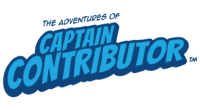Financial Resolutions for the New Year

Why is money called “dough”? Because we all “knead” it!
Just a little superhero humor! But seriously, money is no laughing matter. Right now, people are thinking about their New Year’s resolutions. Some want to exercise more, lose weight, or quit bad habits like smoking. Others want to improve their financial health. If you “knead” some help on ways to save more “dough,” I’ve got a few suggestions.
Financial Resolutions for 2023
More than a third of the people in a recent survey by Fidelity Investments feel they are worse off financially than they were last year. About half say they intend to live more sensibly in the new year and will be making financial resolutions like:
- Saving more money (39%)
- Paying down debt (32%)
- Spending less (28%)
More and more, people are looking to their employers for help with financial well-being issues like saving money, reducing debt, and budgeting. And there are a lot of ways employers can help! Check with your HR to see if your company offers any of the following.
Saving Money
The thought of trying to save money right now may seem like another of my “dad” jokes, but you may find it easier with one of these:
- Emergency Savings Accounts (ESAs) work like this: a small deduction is made from each paycheck and deposited by your employer into a savings account for you. The thought here is that if you never “see” it, you won’t miss it and won’t spend it. Even a small amount each time can grow quickly into a nice little nest egg for emergencies.
- Health Savings Accounts (HSAs) can be opened by anyone enrolled in an HSA-qualified, high-deductible health plan. HSAs let you set aside money tax-free from your paycheck to spend on healthcare expenses. With other healthcare savings accounts, any funds remaining at the end of the plan year may revert to the employer. But with HSAs, leftover money stays in the account, rolls over to the next year, and builds up over time. You can use HSA funds for medical expenses now and, later in life, for retirement as well.
Reducing Debt
Debt affects millions of Americans – medical debt, student loans, credit cards and loans, you name it. It can be so stressful! There are several ways that employers can support employee efforts to pay down their debts.
- Medical debt: Employer-sponsored, consumer-directed healthcare accounts can help you pay for deductibles, copays, coinsurance, prescriptions, and other qualified medical expenses. These include employee-funded accounts like Flexible Spending Accounts (FSAs) and HSAs, and employer-funded accounts like Health Reimbursement Arrangements (HRAs).
- Student loan debt: Student Loan Assistance Programs let employers contribute toward student loan debt without their contributions creating taxable income for the employees who benefit.
- Credit card debt: Lifestyle Spending Accounts (LSAs) let employers help workers pay for nearly any product or service the employer chooses. These can include financial education classes and budgeting apps that help you learn the best ways to conquer high credit card balances.
Spending Less
A lot of us really enjoy activities like belonging to a gym, eating out, or getting a massage. But when money is tight, these may be some of the first things you have to cut back on.
If this is you, check the physical, mental, and financial well-being benefits that your employer offers. You may well find options there that can help you manage your finances and find new ways to once again enjoy favorite activities.
